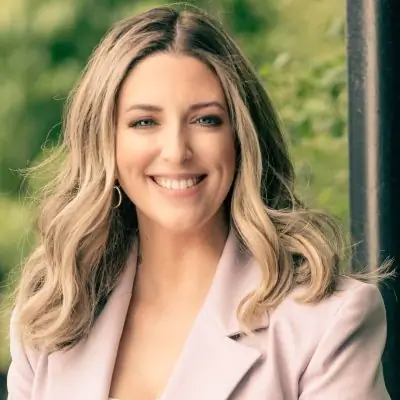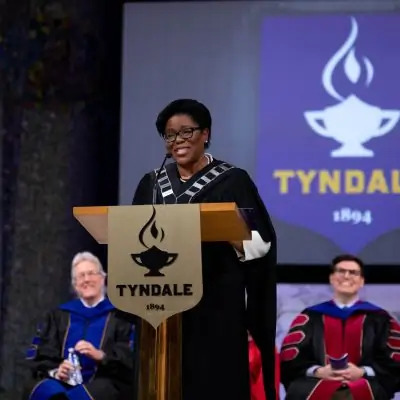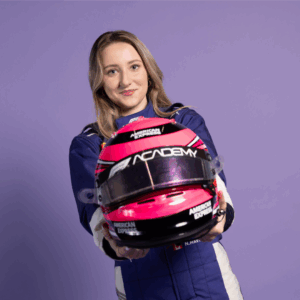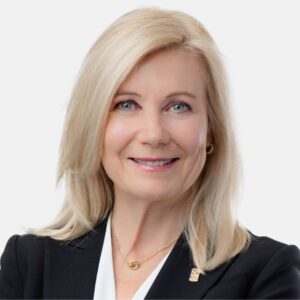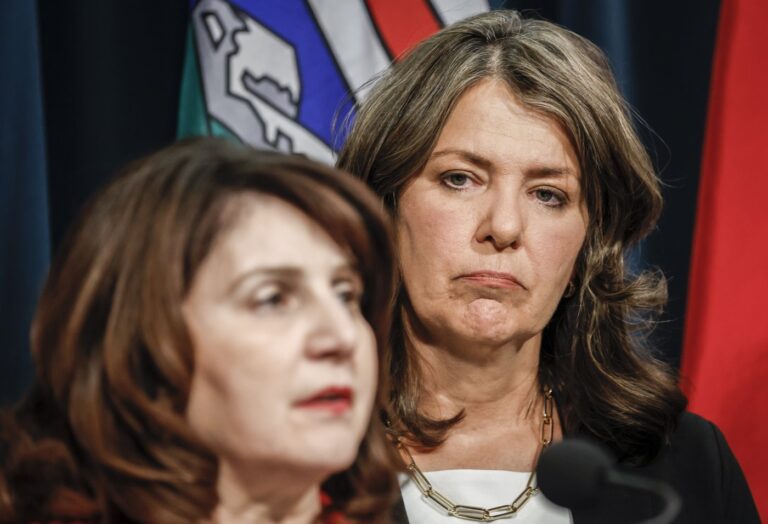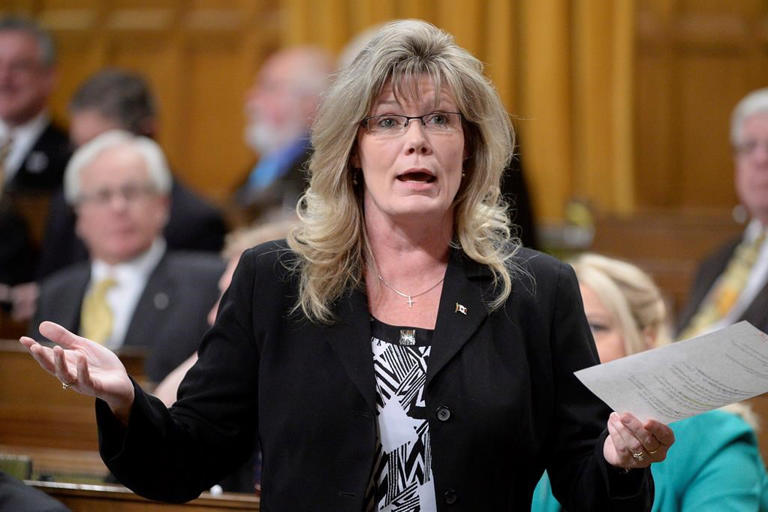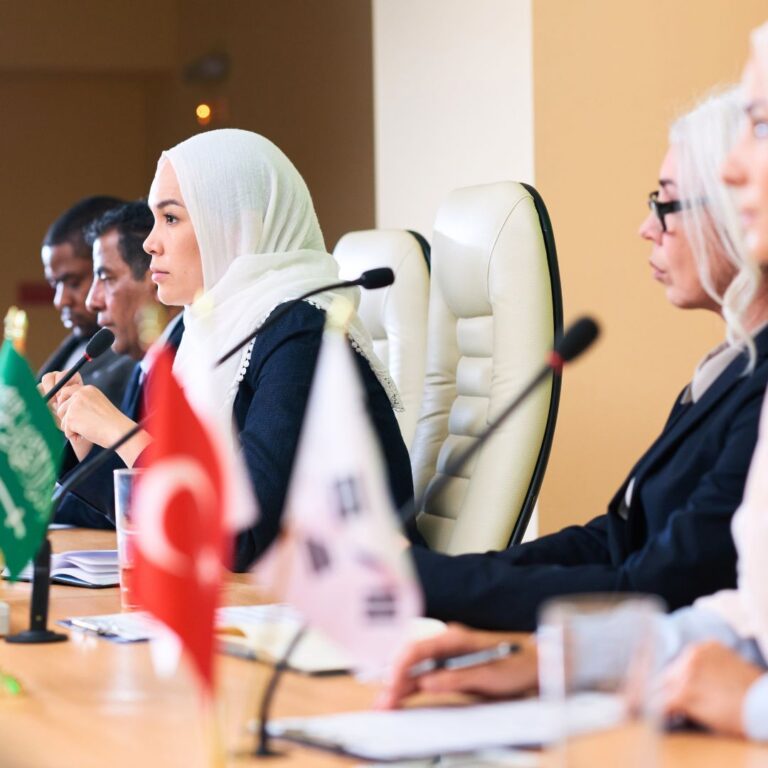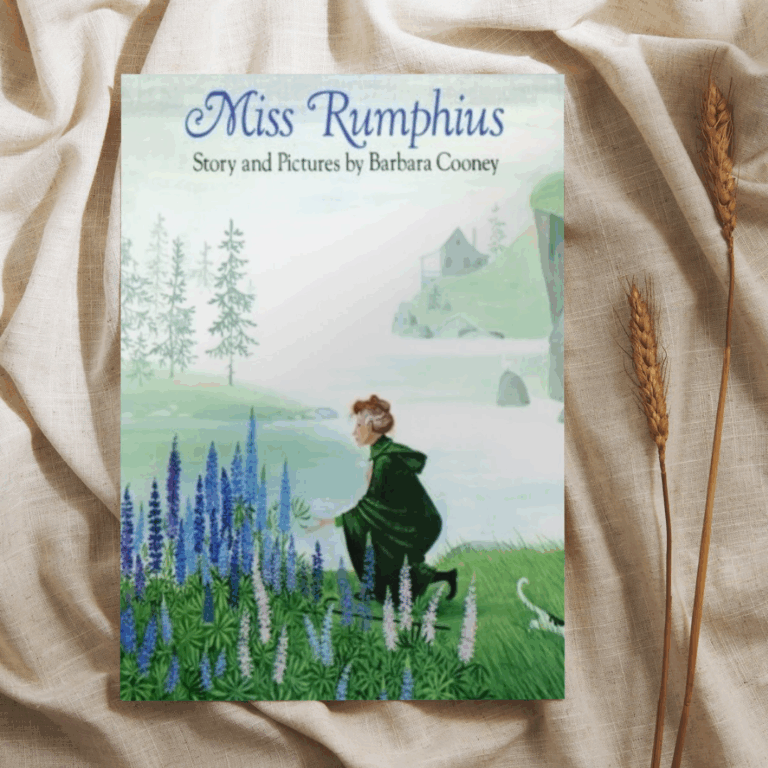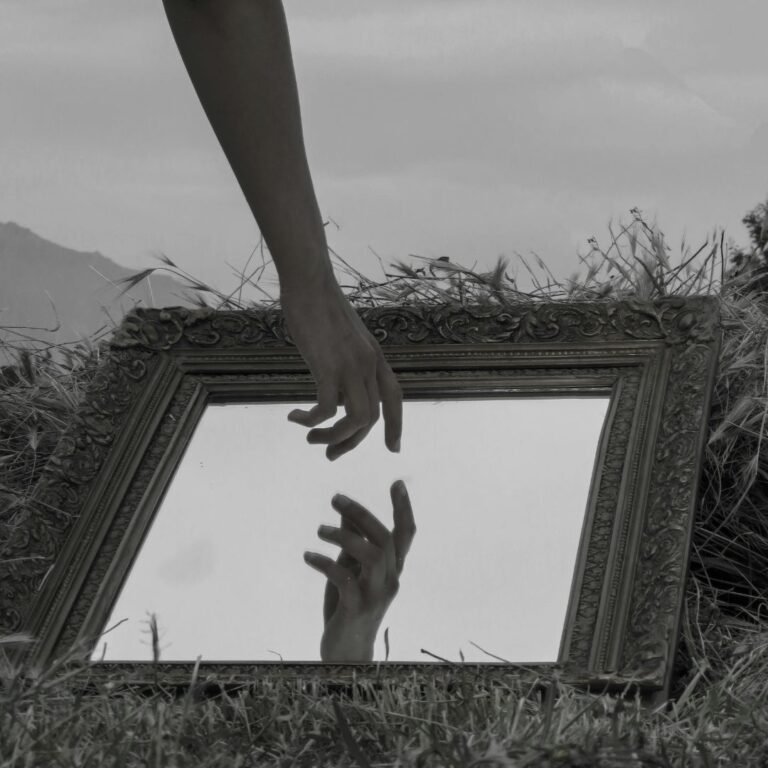Anne-Marie Mediwake – National CTV anchor, triplet-mom & professional morning person
An award-winning national journalist, Anne-Marie Mediwake has worked at every major television news organization in the country, reporting on some of the biggest news stories of our time. Anne-Marie Mediwake is a reporter, a mom of triplets and a friend to morning people everywhere, and she joins Jen and Catherine on this episode of The Honest Talk. She generously shares the behind-the-scenes scoop on her career and family life, her advocacy, and her childhood in Saskatchewan and Alberta after her parents immigrated to Canada when she was a baby.
Note: This transcript was edited for clarity and length.
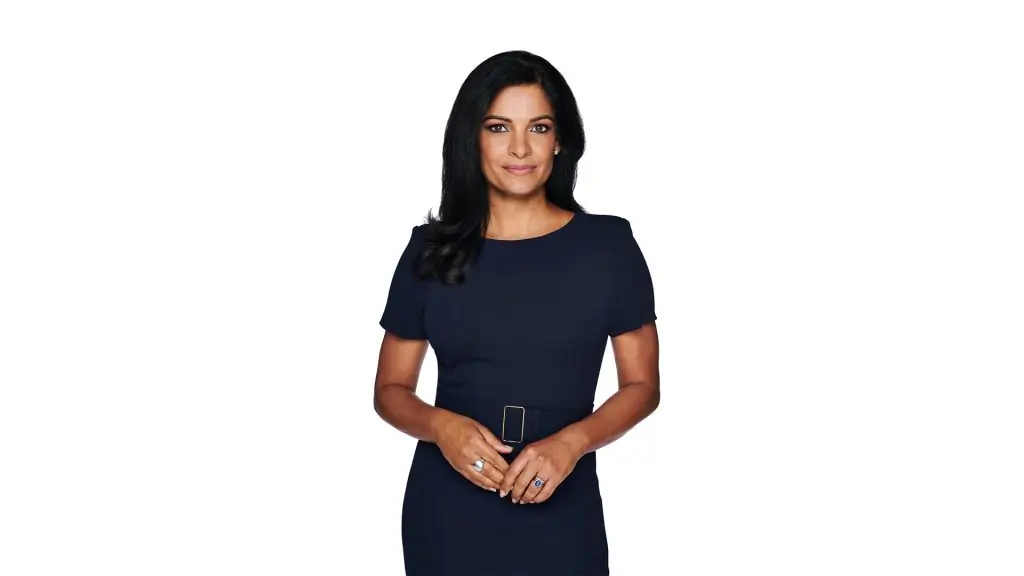
Mom of triplets and a triple banana story
Catherine Clark: You are a mom of triplets. That’s, frankly, superhero status. But there’s an interesting story, before you had the triplets – the triple banana story.
Anne-Marie Mediwake: I should mention, first of all, my kids are now 15 and a half. So I have triplet teenagers, which is a whole other thing. But the story about the triplet banana is really neat. After the tsunami, we went back to Sri Lanka to shoot a documentary. My father is Sri Lankan. I was working at Global at the time. The roads were washed out, there weren’t a lot of places to get food. And we stopped at this roadside stand and bought bananas and nuts. And when I was in the vehicle, I peeled back this banana. There were three bananas in one skin. And the driver at the time laughed and said, “Oh, you’re going to have triplets.” And I thought it was so funny. I took a photograph of myself with this triple banana. And then fast forward two and a half years later, and I’m pregnant with triplets.
Being a working mom means making choices
Jennifer Stewart: So fast forward, your children are 15. What did you have to do to grow this national career that you have and raise three incredible little humans?
Anne-Marie Mediwake: I have a really supportive partner, my husband, Darryl Konynenbelt, who did media for a long time, and he now works in strategic comms. It really does take two people to make this happen. He is a big encourager for me. And when I would want to be cautious, he is always the one saying “Go.” And I was fortunate enough to be able to make choices around what was important. My mom taught me this from the time I was a kid. I’m a really big believer in reverse engineering, taking a picture of what you might hope life to look like and working backwards from that. And being around my kids was really important for me. And I knew that would be a challenge, picking a career in journalism.
I remember the first time I made a choice, when I said ‘no’ to something. It was to go to the Olympics when they were in Vancouver, and I had just started at CBC, and they had asked if I would go and host, but that meant being gone for six weeks. And I knew I could not leave. My husband is amazing, but he would be alone with three two-and-a-half-year-olds. I thought, ‘I’ve just shot my career in the foot.’ And it didn’t end my career. It’s nice to be a journalist and a woman now and a broadcaster now. That choice wasn’t always available to women before me, but I think it’s a sign of progress that I was able to make that choice.
Anne-Marie Mediwake
When I did evening news, it worked out great because I could be home in the day with my kids and then leave in the late afternoon. Then as my kids were getting older and an opportunity came up to do a morning show, I thought that allows me to be around during those critical after-school times when they’re going to be teenagers. And it was one of the factors in my taking this job.
Catherine Clark: We’ve had conversations with some leading journalists who began their careers in the 70s, the 80s. And they not only felt that they couldn’t say no, but they in some cases felt like they couldn’t even have kids. What did it teach you, that when you said no, your career still grew?
Anne-Marie Mediwake: I think it just reinforced the idea that you have to know what is important to you. And you have to know what is high value to you. And that doesn’t mean to say that my career wasn’t high value. For me, it just meant at that stage I had made a commitment to be able to be present for them and also be able to do a great job at what I wanted to have as a career. I could voice that. And it didn’t have to end my career. And I felt a lot of gratitude. Because there were a lot of women who fought just to have a space in the room. And there was no way they would have felt the freedom to make that choice. And you can still be given another chance.
Story of immigration to Canada
Catherine Clark: Anne-Marie, your mom is Scottish. Your dad is Sri Lankan. Your older sister was born in England. Your younger sister was born in Saskatchewan. You were born in Sri Lanka. You grew up in Alberta. That’s not a linear path. How did you end up in Lethbridge, in Alberta?
Anne-Marie Mediwake: Mom and Dad met in London, England. Dad was there for school. He’d come from Sri Lanka. They were a mixed-race couple. They were a mixed-faith couple. So there was controversy on both sides of their family. They had my eldest sister, Naomi, in England. Then they went back to Sri Lanka just before the war was starting in the 70s. And there were some troubles, and they were kicking out foreigners. My mom was British, and my dad’s dad came to him and said, “You need to take Muriel and Naomi, and you need to think about leaving.”
Pierre Trudeau was in Sri Lanka, and they heard him speak. And that’s how they decided to apply to come to Canada. They loved what he had to say about this country. And my dad tells this great story about how he was in this doctor’s office, and in the back of this magazine there were these jobs advertising in Canada, and his background is in veterinary husbandry, and so he applied to this farm.
Literally weeks before they left Sri Lanka, I was born. My mom’s parents had moved from Scotland to California. So Mom took Naomi and me and went to California. My dad went up to Saskatchewan and he found out that the job had basically disappeared. And so he went from running an estate in Sri Lanka to mucking pigs.
When my parents meet at the border in Saskatchewan, the Canadian government won’t let me in because I don’t have the proper paperwork. And so Dad was at the border for three days arguing with the border guys there. And finally, the man who he worked for was a big Liberal supporter, and through various channels, the Minister of Immigration at the time ends up calling this border office to give me permission to come across the border. And so we have this great photo of me crossing the border. I’m this baby in my dad’s arms, and there are combines and swathers behind them because they were really in rural Saskatchewan. And that was how I entered the country. We lived in Saskatchewan for a bit, we lived in Brooks, Alberta for quite a while and then finally moved to Lethbridge.
Jennifer Stewart: It’s so remarkable how brave parents are that immigrate to a new country to keep their children and their families safe. It honestly brings tears to my eyes, going somewhere that you don’t know, that’s completely foreign to you, but you just know you’re going to keep your baby safe. It’s remarkable.
Anne-Marie Mediwake: I don’t even know if I could do it, to leave your whole life, all your support systems, and a really good comfortable life. And to come to a place where sometimes people, because of my dad’s colour – he didn’t have a strong accent but had an accent. In the 70s, being a brown man and being accented, a lot of people treated him like he didn’t know anything.
Jennifer Stewart: Have you ever shared with our Prime Minister the impact that his father’s government had on your whole life and your whole trajectory?
Anne-Marie Mediwake: I did. When Canada was 150, we had a chance to sit down with Justin Trudeau, and I brought him not only that photograph, but I told him the story about how I was sitting here at this interview because my dad listened to his dad’s speech.
Facing racism as a kid
Catherine Clark: We don’t necessarily think about how these little moments in life can, in fact, alter our entire trajectory. We think we’re set on one path. And that’s the beauty and the upheaval of life. You just never know where it’s going to take you.
Anne-Marie Mediwake: It gave us a lot of courage, it taught us to be brave, like Mom and Dad told us that we can do anything. And that’s how we’re growing up in Brooks, Alberta. I was one of the only brown kids in high school, and Mom and Dad were like, you can do anything, you could be anything, and you can go anywhere. And they were living examples of that.
Catherine Clark: Did you face pushback and racism as you were growing up?
Anne-Marie Mediwake: I didn’t have the words to call it racism. And I don’t think it was ever titled that in our home. But my first day of Grade 1, I showed up at school, and somebody hurled a racial slur at me. I didn’t know what it meant, but it had been said with so much hatred, I knew that it was bad. I told the teacher – that’s what you do when you’re six. She took me by the hand and took me class to class to point out who had said this bad word, which is not what we would do now. And I was just really self-conscious and really scared. After school I went home and told my dad. And this is the pivotal part of that story for me. My dad said, “What he said to you actually means that you’re from Pakistan.” And he took me and showed me this big map, and he said, “This is where Pakistan is. This is Sri Lanka, where you were born.” He said, “Clearly, this boy is not smart enough to know the difference.” And in that moment, I figured out, ‘Oh, I’d rather be brown and smart than dumb,’ and that was a real crystallizing piece for me about intelligence and education and wisdom and knowledge that was the important piece of who I was.
Jennifer Stewart: Your parents sound like absolutely amazing people. Anne-Marie, we read that your original career goal was to study law and to be a lawyer. What changed?
Anne-Marie Mediwake: When I was in grade 12, my mom brought me to Ottawa for the first time. She was here at a conference. One of her colleagues at the conference, said, “Do you know what you want to do for pre-law?” And I didn’t. And he asked me what I liked to do. I said that I really liked to read; I really liked to write and research things. And he said, “What about journalism?” That had never, ever been brought up to me before, and I started reading about it. And I thought this is the job! This is all the things that I like to do without law school. So this seems like the career for me.
Schedule as a mom and a journalist
Jennifer Stewart: And you’re now the lead anchor on one of Canada’s most-watched morning shows. You literally help people wake up and get through their mornings. But you’re getting out of bed at 3 a.m. How do you still function? How do you make your day in such a way that you’re still awake and you’re still functioning?
Anne-Marie Mediwake: It took a while. Honestly, when I came to Your Morning, I had just left doing the six o’clock news. And sometimes, I would do the evening news and the National as well. So I literally flipped my broadcast time by 12 hours. The first month that we started in the schedule, my body was physically sick. I felt like I had the flu, and I remember going, “Oh my God, what did I do? I don’t know if physically I can survive this.” And then you get used to it. And you figure out like there are certain hacks and things that I had to change lifestyle-wise, like, I’d never been a person to work out regularly. And I found a trainer, and I started to work out because that improves my sleep.
I actually prefer these hours because you have a jump on the day ahead of everybody. Sometimes I go home and I have a nap for about 45 minutes in the afternoon. I’m fortunate. My kids are 15, so they’re very aware of my schedule. If I say I’m hitting a sleep window, they know we don’t miss the window because then you’re up for hours. And so I’ll head upstairs and go to bed. And they’re pretty good about respecting that boundary.
Importance of diversity and inclusion
Catherine Clark: But what was it like for you as a young journalist because you didn’t necessarily have someone to look up to who looked different, right? Like you? There was a pretty homogenous-looking group of people on TV, especially. Did it affect you?
Anne-Marie Mediwake: I remember one time Dad calling me into the living room. And Ian Hanomansing was filling in on The National. And I remember my dad saying to me, “Look, they let that young man keep his name.” And that was significant, because at the time, people would anglicize their names. So that was a really big moment when he was like, and that young man kept his name.
Diversity is important, but I’m what some people in broadcasting call ‘palatably diverse,’ meaning I don’t have an accent. There’s no real mystery to me. And so my hope is in this next phase of diversity and inclusion, that it’s not just visual diversity, but it’s actual inclusion, meaning culture is important and relevant to conversations and to coverage. More and more I see the need for it, because as networks hire people that visually look different, we want to make sure that we sound and connect differently as well, because diversity isn’t just about skin colour. And if we make it just about skin colour, then we’re missing the point.
Jennifer Stewart: And when you hire people in this environment, I think you have to give some thought to how you also protect people. This year, such an onslaught of online attacks, particularly against female journalists, from your vantage point, how is this impacting the industry?
Anne-Marie Mediwake: So I was listening to Vassy’s interview that she did with you guys. And I’m sort of from that school of thought too where I just turn it off, I can not engage. And I recognize that not everybody does that. And some of the threats are serious enough, and you shouldn’t ignore them. There’s strength in pushing back and just being there and in being able to withstand, but that also needs support from newsrooms to be able to do that as well. And for them not to brush it off and to take things that are serious seriously.
I noticed a few years ago when a lot of the organizations, media and otherwise started to give space, they would take young women or men of colour, and they would give them sort of these prominent fellowships or roles. But I remember meeting one of them at one of these galas. And I said, Congratulations, this is exciting. So how do you feel? And she looked around. She said to me, “I’m terrified.” And I said, “Why are you scared?” And she said, “Because I don’t know how to use my voice. And I don’t know if it will be supported when I use it.” And so it taught me the importance of having mentorship alongside opportunity.
Importance of mentorship
Catherine Clark: You talked about helping young women understand that they have a light. What did you mean by helping you when women figure out that they have a light?
Anne-Marie Mediwake: I’m raising two young women now. And you realize the things women do or that are trained, even in using their voice. Even before they give an answer, they have to quantify or qualify it, or they use a softer voice so that it doesn’t seem strong. I realize we do all of these things because we’re afraid of being shut down. So even though you’re given a space at the table, you’re worried that if you actually use your voice, who’s going to talk over you or going to shut the idea down, so you try to make yourself less threatening. The more women that we have supporting other women to just be strong and to just speak plainly, I think that it becomes more normal.
Advice for professional women
Jennifer Stewart: What advice do you have for professional women as we launch into a new year at this very charged moment in history?
Anne-Marie Mediwake: I’d say for younger women who are starting out, not to be afraid, but also to find people to help you along the way. It doesn’t mean you don’t know what you’re doing. It doesn’t mean you’re going to be judged poorly for it. I think it’s good to gain some wisdom. And also to be adaptable and to know that if it doesn’t turn out how you’ve planned it, that’s okay. I’ve just figured out finding joy may not look like what I thought it was going to look like. And that is okay.

